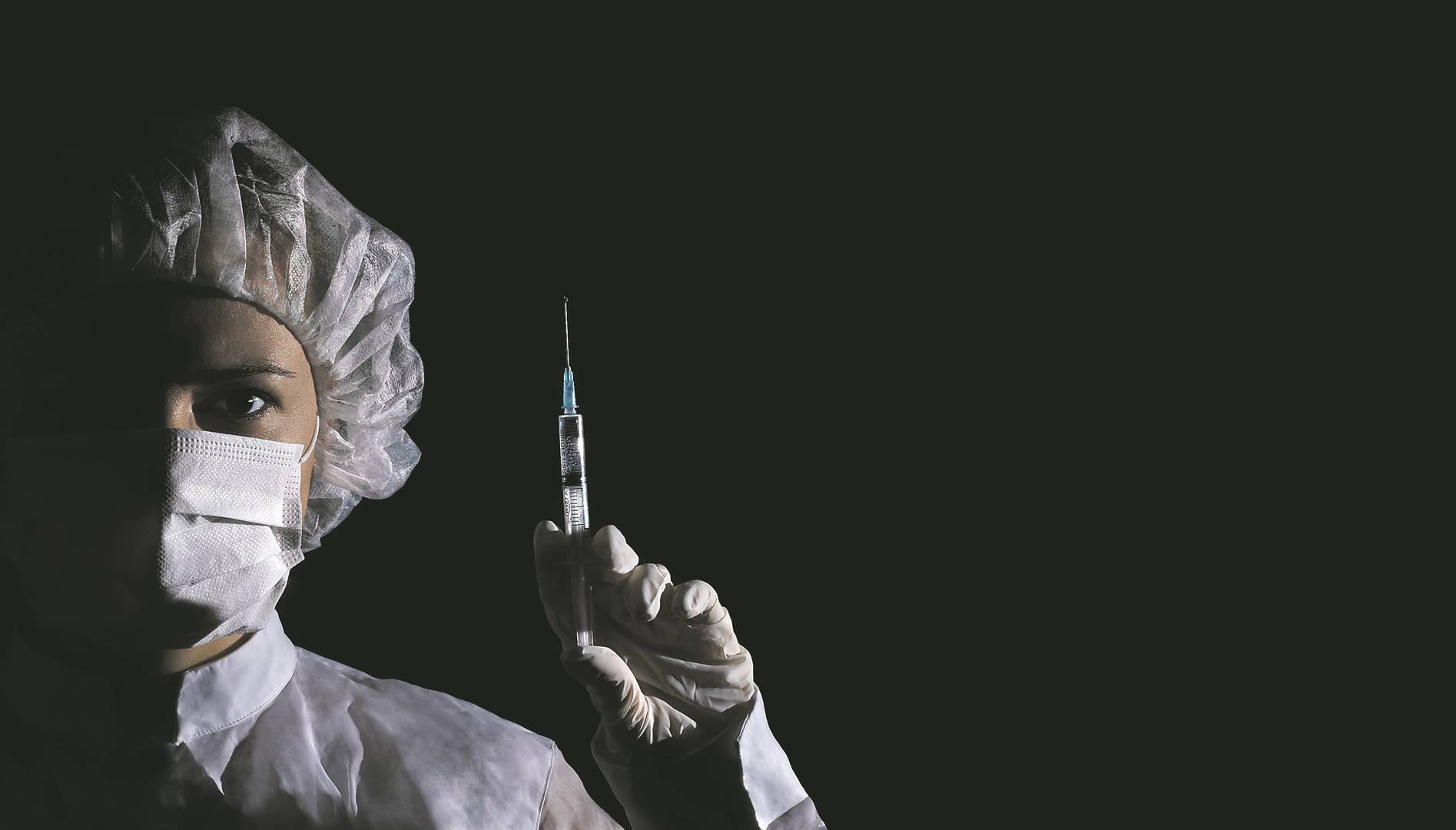
Inadequately trained, South Africa’s severely distressed health professionals are living in fear of contracting a deadly virus and then passing it on to their families.
This is how the country’s healthcare workers, particularly nurses, feel when it comes to the national response to the Covid-19 coronavirus pandemic and their role in it.
These are among the main findings of a new survey called Frontline talk – South African healthcare workers’ response to the Covid-19 pandemic. The report was released this week.
The report shows that nurses, often described as the backbone of the healthcare system, appear to be the Cinderellas of the health sector – lagging behind in critical training regarding Covid-19 treatment guidelines. And they have little confidence in their own knowledge about the many moving parts of the virus and its progression.
The study was led by the Human Sciences Research Council in collaboration with the University of KwaZulu-Natal’s College of Health Sciences and the Edendale Hospital in Pietermaritzburg, KwaZulu-Natal.
It surveyed 7 808 healthcare professionals – 36.7% of whom were nurses. Nurses make up 65% of the country’s healthcare workforce, and the majority of them are women.
Crucially, as we celebrate Women’s Day, it is important to note that 78.2% of the respondents were women, and the issues highlighted by the survey are a reflection of the experiences of many women working in the healthcare sector.
Just this week, in his situational update on the country’s Covid-19 response, Health Minister Zweli Mkhize said 24 104 healthcare workers had been infected with the virus and 181 had died.
The survey was conducted as the pandemic started gaining ground locally – between April 11 and May 7. At the time, there were only 2 003 confirmed cases in the country. As of Friday, there were 538 184 confirmed infections in South Africa, and 9 604 people had died from the virus.
Read | Covid-19: The human faces behind the surgical masks
“The survey has given us confirmation of what we knew and what we’ve been raising [as concerns] as far back as April. We asked for training [on Covid-19] in April, as it was our foresight from complaints from our members [that it would be a problem],” said Simon Hlungwani, president of the Democratic Nursing Organisation of SA (Denosa).
During the release of the The State of the World’s Nursing in April, Dr Tedros Adhanom Ghebreyesus, the director-general of the World Health Organisation, said: “Nurses are the backbone of any health system. Today, many nurses find themselves on the frontline in the battle against Covid-19. This report is a stark reminder of the unique role they play, and a wake-up call to ensure they get the support they need to keep the world healthy.”
But this latest report shows that nurses have not had nearly enough support. The survey asked 45 close-ended questions on themes around knowledge about Covid-19, sources of information about Covid-19, training for the management of Covid-19, self-perceived risk (including risk factors), psychological distress, and general health and wellbeing.
“This issue of confidence in healthcare workers in overall knowledge about Covid-19 is important. About 54.7% of medical professionals demonstrated confidence in their knowledge, and the lowest percentage was with nurse practitioners [only 41.7% said they were confident in their knowledge]. The number of those who didn’t have confidence in their knowledge was quite high [35%],” said Professor Mosa Moshabela, dean and head of school for the School of Nursing and Public Health at the University of KwaZulu-Natal.
The nurses’ inadequate confidence in overall knowledge would later link up to other survey findings related to training.
There, the researchers looked into the different areas of training in the management of Covid-19 patients. These ranged from infection control, screening, isolation, referrals and treatment guidelines to declaring a patient recovered.
“Across the board, most healthcare professionals were trained in what we call workplace infection control (73%), but the lowest [training] was declaring a patient as recovered. This was a dynamic area that kept changing as treatment guidelines also evolved. We would have hoped that, at the time of the survey, healthcare worker training on case definitions and treatment guidelines were around 100%,” he said.
“There were differences between training in the professional categories. Medical practitioners received training in these different areas – ranging from 70% to 80% of them. For nurses and other professionals, [levels] were lower across the board,” Moshabela said.
In terms of the healthcare professionals’ risk perception of their contraction of Covid-19 by professional category, one of the survey’s key findings was that nurses felt they were most as risk.
More than 72% of the respondents said they felt they were at risk of contracting the virus, followed by medical practitioners at 61%.
“We can’t say the risk perception is not because of them receiving limited training and because their knowledge was relatively lower. We know from literature that, if your knowledge is low and training is low, your risk perception is high,” Moshabela added.
Read more | Non-medical staff fear Covid exposure
They survey also found that healthcare professionals in the country were mostly concerned about passing on the infection to their families.
“It’s because we hear these stories, but generally we often don’t pay attention to them. At least 70.8% feared for their family members and their own health, and 72.2% feared passing the infection on to their family members. At least two in five nurses were concerned about the risk of transmitting Covid-19 to their families.
“There were high levels of psychological distress among healthcare workers. For the nurses, severe distress was high at 25%. That means one in four nurses experienced severe psychological distress. In terms of wellbeing, 44% of the nurses had poor health compared with other healthcare professional groups, which was at 25%,” Moshabela said.
“What is of note to realise when healthcare workers have poor health is that they also experience high levels of distress, so there is an association,” he said.
On the psychological distress of the nurses, Denosa’s Hlungwani noted: “We shouldn’t discount the impact of the experience of someone dying in your hands – it’s very distressing. We currently don’t have a system in the health sector to address that [psychological distress] and the exposure to that in the long term.”
| ||||||||||||||||||||||||||||||
 |




 Publications
Publications
 Partners
Partners










